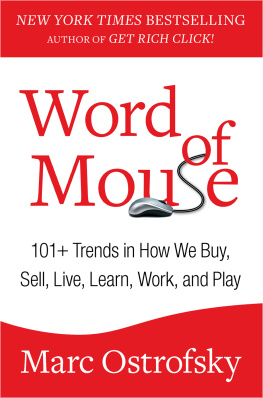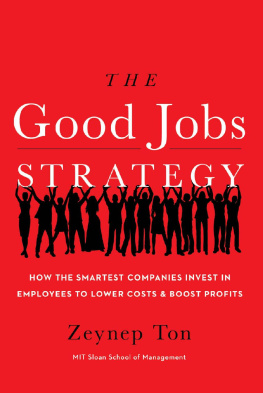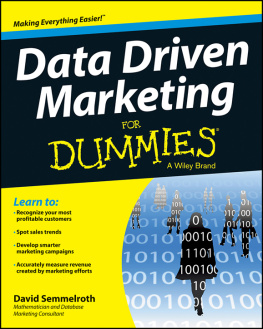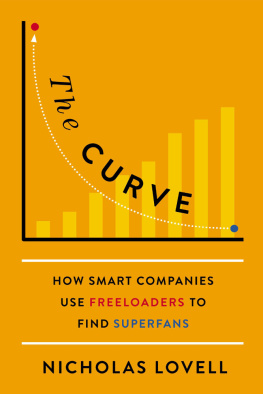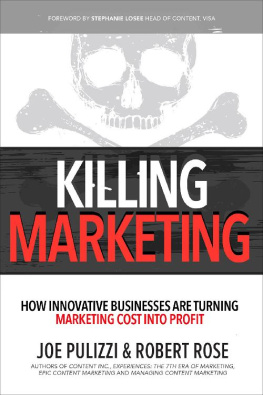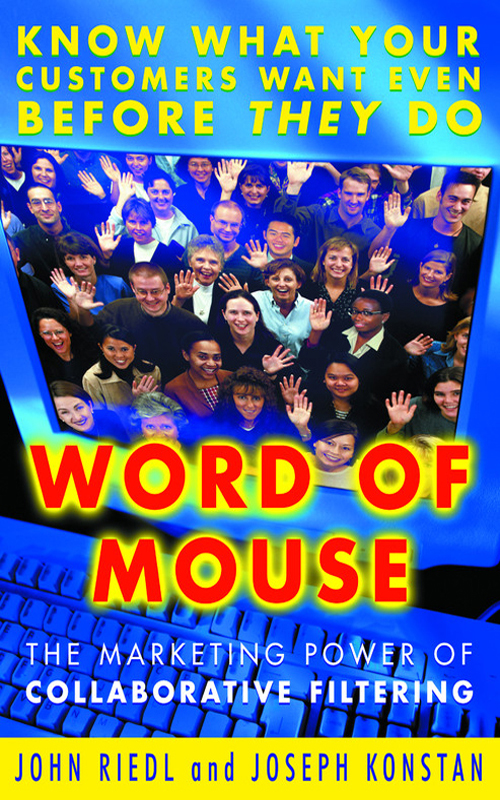Copyright 2002 by
Professors John Riedl and Joseph Konstan
All rights reserved.
Warner Books, Inc.,
Hachette Book Group,
237 Park Avenue,
New York, NY 10017
Visit our website at www.HachetteBookGroup.com.
ISBN: 978-0-7595-2727-0
First eBook Edition: August 2002
by Malcolm Gladwell
Excerpted from The Science of the Sleeper: How the Information Age Could Blow Away the Blockbuster (The New Yorker)
In 1992, a sometime actress named Rebecca Wells published a novel called Little Altars Everywhere with a small, now defunct press in Seattle. Wells was an unknown author, and the press had no money for publicity. She had a friend, however, who spent that Thanksgiving with a friend who was a producer of National Public Radios All Things Considered. The producer read the book and passed it on to Linda Wertheimer, a host of the show, and she liked it so much that she put Wells on her program. That interview, in turn, was heard by a man who was listening to the radio in Blytheville, Arkansas, and whose wife, Mary Gay Shipley, ran the town bookstore. He bought the book and gave it to her; she loved it, and, with that, the strange and improbable rise of Rebecca Wells, best-selling author, began.
Blytheville is a sleepy little town about an hour or so up the Mississippi from Memphis, and Mary Gay Shipleys bookstoreThat Bookstore in Blythevillesits between the Red Ball Barber Shop and Westbrooks shoe store on a meandering stretch of Main Street. The store is just one long room in a slightly shabby store-front, with creaky floors and big overhead fans and subject headings on the shelves marked with Post-it notes. Shipleys fiction section takes up about as much shelf space as a typical Barnes & Noble devotes to, say, homeopathic medicine. Thats because Shipley thinks that a book buyer ought to be able to browse and read the jacket flap of everything that might catch her eye, without being overwhelmed by thousands of choices. Mostly, though, people come to Mary Gay Shipleys store in order to find out what Mary Gay thinks they ought to be reading, and in 1993 Mary Gay Shipley thought people ought to be reading Little Altars Everywhere. She began ordering it by the dozen, which, Shipley says, for us, is huge. She put it in the little rack out front where she lists her current favorites. She wrote about it in the newsletter she sends to her regular customers. We could tell it was going to have a lot of word of mouth, she says. It was the kind of book where you could say, Youll love it. Take it home. The No. 1 author at That Bookstore in Blytheville in 1993 was John Grisham, as was the case of nearly every bookstore in the country. But No. 2 was Rebecca Wells.
In the book business, as in the movie business, there are two kinds of hits: sleepers and blockbusters. John Grisham and Tom Clancy and Danielle Steel write blockbusters. Their books are announced with huge publicity campaigns. Within days of publication, they leap onto the best-seller lists. Sales start highhundreds of thousands of copies in the first few weeksand then taper off. People who buy or watch blockbusters have a clear sense of what they are going to get: a Danielle Steel novel is alwayswell, a Danielle Steel novel. Sleepers, on the other hand, are often unknown quantities. Sales start slowly and gradually build; publicity, at least early on, is often nonexistent. Sleepers come to your attention by a slow, serendipitous path: a friend who runs into a friend who sets up the interview that just happens to be heard by a guy married to a bookseller. Sleepers tend to emerge from the world of independent bookstores, because independent bookstores are the kinds of places where readers go to ask the question that launches all sleeper hits: Can you recommend a book to me? Shipley was plugging Terry Kays To Dance with the White Dog long before it became a best-seller. She had Melinda Haynes lined up to do a reading at her store before Oprah tapped Mother of Pearl as one of her recommended books and it shot onto the best-seller lists. She read David Gutersons Snow Falling on Cedars in manuscript and went crazy for it. I called the publisher, and they said, We think its a regional book. And I said, Write it down: M.G.S. says this is an important book. All this makes it sound as if she has a sixth sense for books that will be successful, but thats not quite right. People like Mary Gay Shipley dont merely predict sleeper hits; they create sleeper hits.
Most of us, of course, dont have someone like Mary Gay Shipley in our lives, and with the decline of the independent bookstore in recent years the number of Shipleys out there creating sleeper hits has declined as well. The big chain bookstores that have taken over the bookselling business are blockbuster factories, since the sheer number of titles they offer can make browsing an intimidating proposition. As David Gernert, who is John Grishams agent and editor, explains, If you walk into a superstore, thats where being a brand makes so much more of a difference. There is so much more choice, its overwhelming. You see walls and walls of books. In that kind of environment, the reader is drawn to the known commodity. The brand-name author is now a safe haven. Between 1986 and 1996, the share of book sales represented by the thirty top-selling hardcover books in America nearly doubled.
The new dominance of the blockbuster is part of a familiar pattern. The same thing has happened in the movie business, where a handful of heavily promoted films featuring bankable stars now command the lions share of the annual box-office. We live, as the economists Robert Frank and Philip Cook have argued, in a winner-take-all society, which is another way of saying that we live in the age of the blockbuster. But what if there were a way around the blockbuster? What if there were a simple way to build your very own Mary Gay Shipley? This is the promise of a new technology called collaborative filtering, one of the most intriguing developments to come out of the Internet age.
If you want a recommendation about what product to buy, you might want to consult an expert in the field. Thats a function that magazines like Car and Driver and Sound & Vision perform. Another approach is to poll users or consumers of a particular product or service and tabulate their opinions. Thats what the Zagat restaurant guides and consumer-ratings services like J. D. Power and Associates do. Its very helpful to hear what an expert audiophile has to say about the newest DVD player, or what the thousands of owners of the new Volkswagen Passat have to say about reliability and manufacturing defects. But when it comes to books or movieswhat might be called taste productsthese kinds of recommendations arent nearly as useful. Few moviegoers, for example, rely on the advice of a single movie reviewer. Most of us gather opinions from a variety of sourcesfrom reviewers whom we have agreed with in the past, from friends who have already seen the movie, or from the presence of certain actors or directors whom we already likeand do a kind of calculation in our heads. Its an imperfect procedure. You can find out a great deal about what various critics have to say. But theyre strangers, and, to predict correctly whether youll like something, the person making the recommendation really has to know something about you.
Thats why Shipley is such a powerful force in touting new books. She has lived in Blytheville all her life and has run the bookstore there for twenty-three years, and so her customers know who she is. They trust her recommendations. At the same time, she knows who they are, so she knows how to match up the right book with the right person. For example, she really likes David Gutersons new novel,


